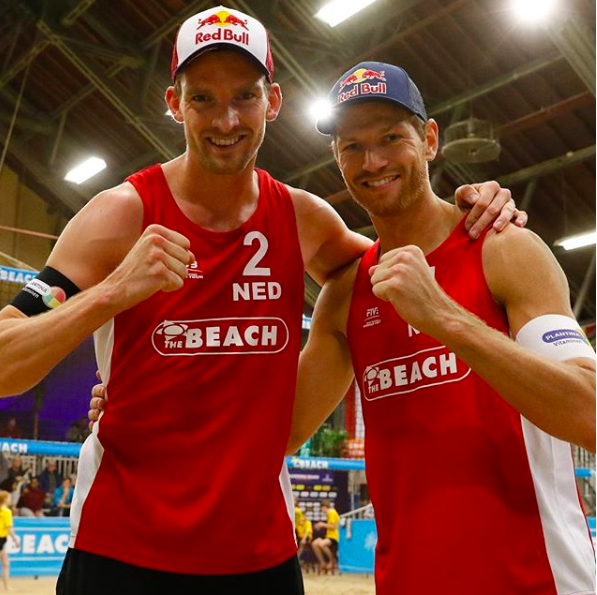
- Podcast Features
-
Monetization
-
Ads Marketplace
Join Ads Marketplace to earn through podcast sponsorships.
-
PodAds
Manage your ads with dynamic ad insertion capability.
-
Apple Podcasts Subscriptions Integration
Monetize with Apple Podcasts Subscriptions via Podbean.
-
Live Streaming
Earn rewards and recurring income from Fan Club membership.
-
Ads Marketplace
- Podbean App
-
Help and Support
-
Help Center
Get the answers and support you need.
-
Podbean Academy
Resources and guides to launch, grow, and monetize podcast.
-
Podbean Blog
Stay updated with the latest podcasting tips and trends.
-
What’s New
Check out our newest and recently released features!
-
Podcasting Smarter
Podcast interviews, best practices, and helpful tips.
-
Help Center
-
Popular Topics
-
How to Start a Podcast
The step-by-step guide to start your own podcast.
-
How to Start a Live Podcast
Create the best live podcast and engage your audience.
-
How to Monetize a Podcast
Tips on making the decision to monetize your podcast.
-
How to Promote Your Podcast
The best ways to get more eyes and ears on your podcast.
-
Podcast Advertising 101
Everything you need to know about podcast advertising.
-
Mobile Podcast Recording Guide
The ultimate guide to recording a podcast on your phone.
-
How to Use Group Recording
Steps to set up and use group recording in the Podbean app.
-
How to Start a Podcast
-
Podcasting
- Podcast Features
-
Monetization
-
Ads Marketplace
Join Ads Marketplace to earn through podcast sponsorships.
-
PodAds
Manage your ads with dynamic ad insertion capability.
-
Apple Podcasts Subscriptions Integration
Monetize with Apple Podcasts Subscriptions via Podbean.
-
Live Streaming
Earn rewards and recurring income from Fan Club membership.
-
Ads Marketplace
- Podbean App
- Advertisers
- Enterprise
- Pricing
-
Resources
-
Help and Support
-
Help Center
Get the answers and support you need.
-
Podbean Academy
Resources and guides to launch, grow, and monetize podcast.
-
Podbean Blog
Stay updated with the latest podcasting tips and trends.
-
What’s New
Check out our newest and recently released features!
-
Podcasting Smarter
Podcast interviews, best practices, and helpful tips.
-
Help Center
-
Popular Topics
-
How to Start a Podcast
The step-by-step guide to start your own podcast.
-
How to Start a Live Podcast
Create the best live podcast and engage your audience.
-
How to Monetize a Podcast
Tips on making the decision to monetize your podcast.
-
How to Promote Your Podcast
The best ways to get more eyes and ears on your podcast.
-
Podcast Advertising 101
Everything you need to know about podcast advertising.
-
Mobile Podcast Recording Guide
The ultimate guide to recording a podcast on your phone.
-
How to Use Group Recording
Steps to set up and use group recording in the Podbean app.
-
How to Start a Podcast
-
Help and Support
- Discover

SANDCAST: Beach Volleyball with Tri Bourne and Travis Mewhirter
Sports:Volleyball

They’re strategy was, simply, to dream on, because what else could they really do?
Alexander Brouwer and Robert Meeuwsen had no prior experience to call upon in the 2013 World Championships. The young Dutchmen had never made it further than the quarterfinals in an FIVB of any kind, let alone the biggest FIVB of the year.
Yet there they were, in the semifinals against Germany’s Kay Matysik and Jonathan Erdmann, a pair of Olympians. They were in the semifinals against the most unlikely of odds, navigating a gauntlet of a bracket that included Netherlands legend Reinder Nummerdor, to whom both would point as a source of inspiration the way Karch Kiraly and Sinjin Smith are to Americans. They toppled Austrians Cleens Doppler and Alexander Horst, stunned Brazilians Pedro Solberg and Bruno Schmidt in the quarterfinals – and now what?
“We just said to keep on dreaming,” said Meeuwsen, now 30 years old and the blocker of the two, on SANDCAST: Beach Volleyball with Tri Bourne and Travis Mewhirter.
So they dreamt, and they won, a 21-13, 21-17 pasting of the Germans, which preceded an equally dominant 21-18, 21-16 over Brazilian legend Ricardo and his young defender, Alvaro.
Against all odds, Brouwer and Meeuwsen, at just 23 and 25 years old, respectively, were the world champs.
“We got first at the World Championships,” Brouwer said. “But we were definitely not the No. 1 team in the world. Because the next weekend we got third.”
“You wish we got third,” Meeuwsen said, laughing. “We got fourth.”
“As soon as you realize it, your feet are back on the earth,” Brower said.
That win in Poland for the World Championships was their first career victory on the FIVB Tour.
It would also be, as Brouwer suggested, the last for quite some time.
It is difficult to imagine a tournament in which the Dutch are not a favorite to win or at least make a podium. Yet for nearly two years, their world championship victory seemed more a fluke than a harbinger of things to come. They played 11 tournaments in 2014 and made it to the quarterfinals just twice, finishing outside of the top 10 in nearly half, once falling as far to take a 25th.
Difficult conversations were had. The topic of switching partners, no small ordeal in a country of just 17 million and what Brouwer estimates to be 150,000 volleyball players, significantly less of which play beach, came up.
Brouwer had previously played with up-and-coming basher Christian Vaarenhorst. At 6-foot-10, with a booming jump serve and a vicious swing, Meeuwsen’s options wouldn’t be limited.
“2014 was a difficult year for us,” Brouwer said. “Bad results and then after that season you come to a point where you think of the options you have. But I think for us both that we both made the decision to stick together and to work on improving things and get better as a team instead of choosing the easy way and switching partners.
“I really like this challenge that even when you have those moments where you feel like ‘Shit this is really bad’ and you can face it not as a challenge but just as a problem and you work on it and you come out stronger.”
Stronger. Physically. Mentally. As individuals. As a team.
In the first tournament of the 2015 season they were back in the finals. Then they were back again a month later. A month after that, in Porec, they were back again, this time beating Canadians Josh Binstock and Sam Schachter for the gold, their first since winning the 2013 World Championships.
In the span of three tournaments they had completely altered the narrative, from a physical team with a high ceiling but little results to show for it to a bona fide power, one of the best in the world.
In 2016 they added another title to their names: Olympians. Better yet: Olympic medalists, beating Russia in the bronze medal match after losing a thrilling three-setter to eventual gold medalists Alison and Bruno in the semifinals.
“The only two moments beach volleyball is really broadcasted in the Netherlands were the World Championships in 2015 and the Olympic Games,” Brouwer said. “That’s where we have to shine and have our moment as a sport.”
They had their moment. They have lots of moments. This week, in Huntington Beach, could be another. Their focus has shifted from simply playing well in tournaments to winning them. This year, they’ve already won two.
“Usually of course before the start of every season we make our new goals and that’s been a big change,” Meeuwsen said. “Before we were always talking about making semifinals and wanting to get medals. In 2015 and ‘16 we were able to do that quite often and we were happy with that result but in that moment, you think ‘Ok, we made it this far but now it’s more about getting those gold medals more often’ and we know that’s a really tough thing but our goal for Tokyo is to win a gold medal. In order to reach that you need to start winning more tournaments and learning how to play with the mindset of ‘Ok, I’m playing this tournament to win. All or nothing.’”
More Episodes
 2025-12-31
2025-12-31
 1.1k
1.1k
 2025-12-10
2025-12-10
 995
995
 2025-11-22
2025-11-22
 876
876
 2025-11-20
2025-11-20
 905
905
Create your
podcast in
minutes
- Full-featured podcast site
- Unlimited storage and bandwidth
- Comprehensive podcast stats
- Distribute to Apple Podcasts, Spotify, and more
- Make money with your podcast
It is Free
- Privacy Policy
- Cookie Policy
- Terms of Use
- Consent Preferences
- Copyright © 2015-2026 Podbean.com

